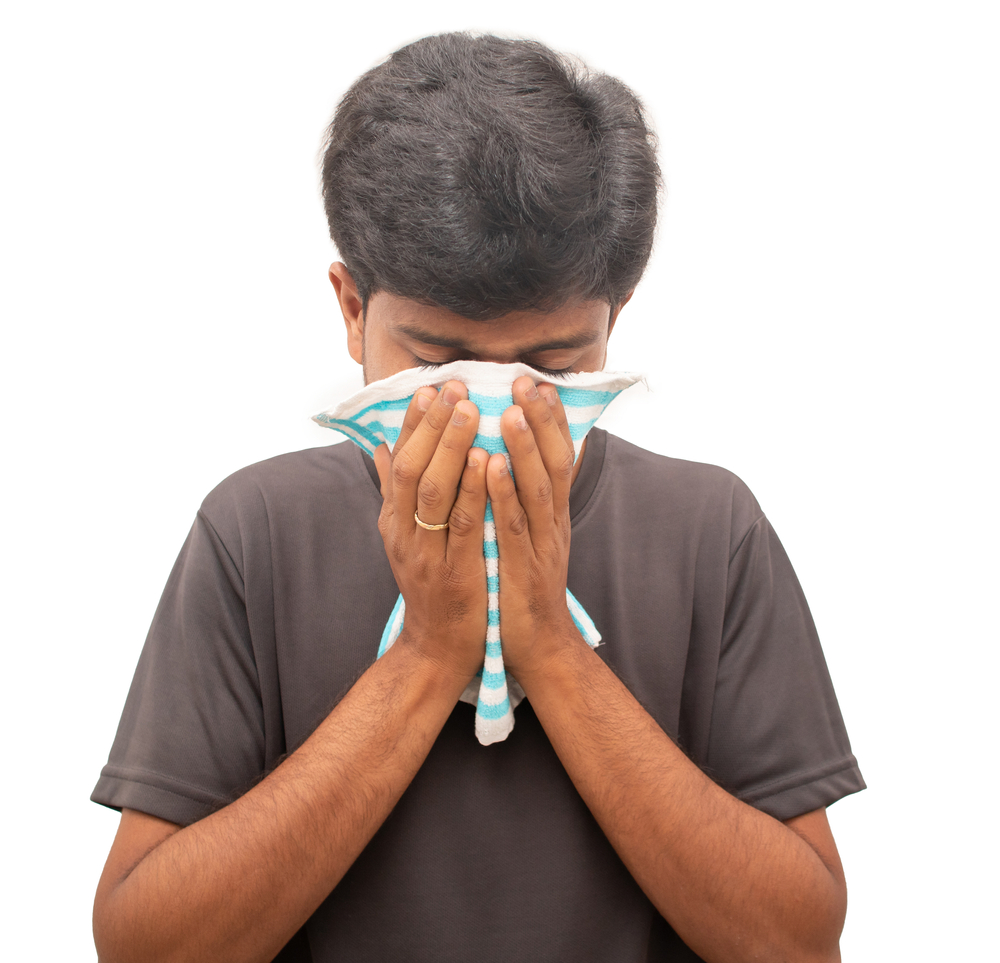These have always been considered mild, irritating but self-limiting infections. They usually last 7-10 days. They affect everyone three to four times a year when the weather changes. The symptoms are a runny nose, cough and mild fever in the range of 100-101°F. Unfortunately, the entire family is affected by this infection, one after the other.
Most of these infections are caused by a variety of “cold” viruses. The initial virus infection may be followed by a secondary bacterial infection by organisms such as chlamydia, mycoplasma and streptococcus.
A change in weather (particularly, cold air) can cause blood vessels in the nose to constrict. This can help viruses to gain a foothold. Pollen in the air can also irritate the nose and make the person susceptible to infection.
Viral infections do not need aggressive treatment. Rest, reducing the headache and fever with antipyretics (paracetamol), and mucolytics and cough suppressants are usually all that is required. Bacterial infections respond to specific antibiotics provided the dosage and duration of treatment are adequate.
Most people acquire some immunity to common viruses. The frequency and severity of infections gradually decrease. The coronavirus pandemic is an exception. It is a novel virus that people have not been exposed to. There is no herd immunity. In some people, it causes a virulent “hyper response” where oxygenation in the lungs is affected. Clotting can occur in blood vessels all over the body and result in multi-organ failure.
Japan has had relatively fewer cases than other countries. They did not have a total lockdown or impose severe restrictions on the movement of people. As a country, they anyway tend to maintain social distancing and many wear masks normally. They sanitise hands and also gargle regularly. Scientific studies have shown that gargling reduces the incidence of colds and sore throat. Some of the studies used a solution of povidone-iodine while others used just a heaped teaspoon of salt in 250ml of water. Steam inhalations using just hot water also reduced the occurrence of common colds and sore throats.
The Indian government has been touting these preventive measures for the past three months. Unfortunately, unlike the Japanese we are not inclined to listen. The coronavirus spreads through droplet infection. It does not travel for more than two metres but can survive for several hours on tables, bannisters and walls. From there it can be passively transferred, by touching these surfaces and then your face.
Immunity plays an important role in whether we acquire disease and the severity of its manifestation. Immunity is poor at the extremes of life — the very young and the old. Women generally have better immunity.
To boost your immunity:
- Exercise for 40 minutes a day. Do breathing exercises and meditation for 10 minutes each
- Eat 4-6 helpings of fresh fruits and vegetables daily. They will provide essential micronutrients and antioxidants to fight inflammation
- Regular intake of turmeric, pepper, tulsi, neem and mint is probably beneficial if used long-term
- Gargle with salted water and take steam inhalations twice a day
- Wear a triple-layered mask that can be washed daily. Maintain social distancing.
No vaccine has been developed yet, but untested immunity boosters are being lapped up by the frightened population.
The writer is a paediatrician with a family practice at Vellore and the author of Staying Healthy in Modern India. If you have any questions on health issues please write to yourhealthgm@yahoo.co.in










